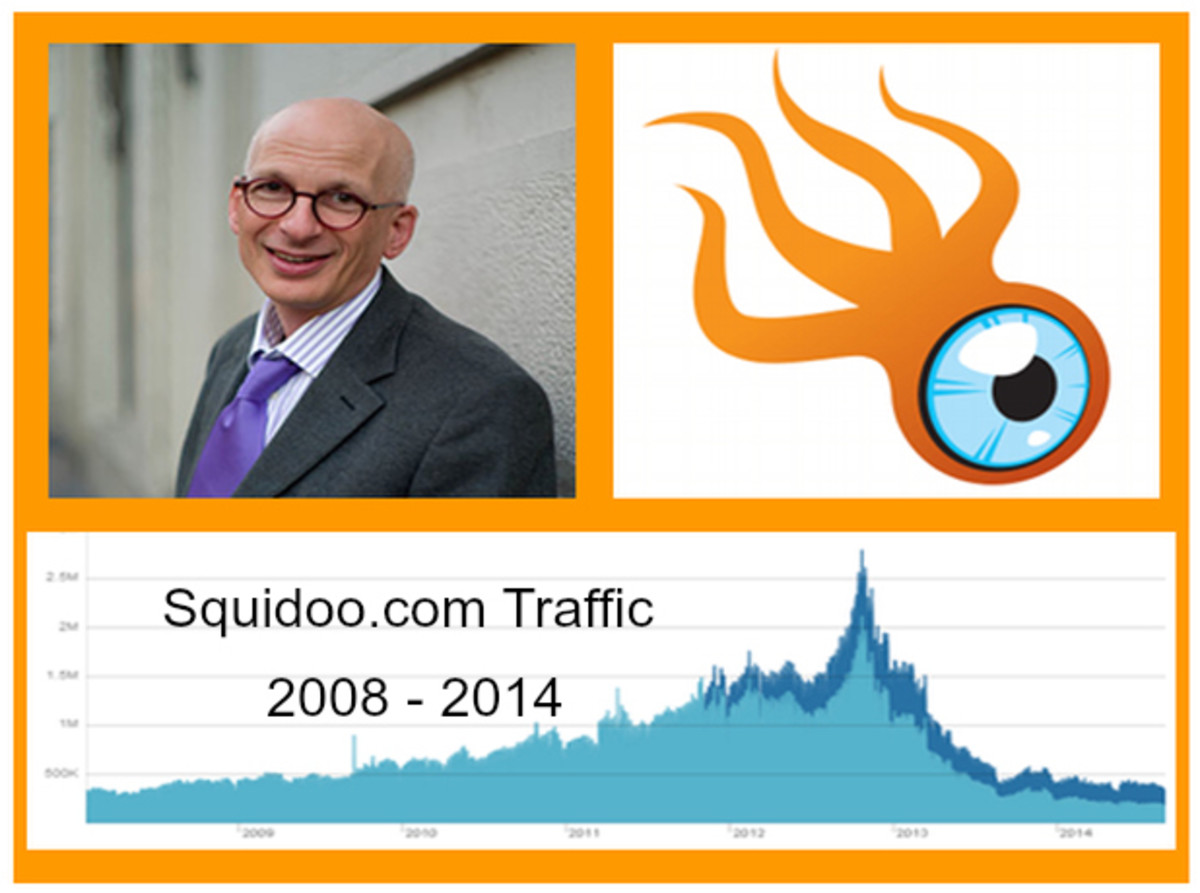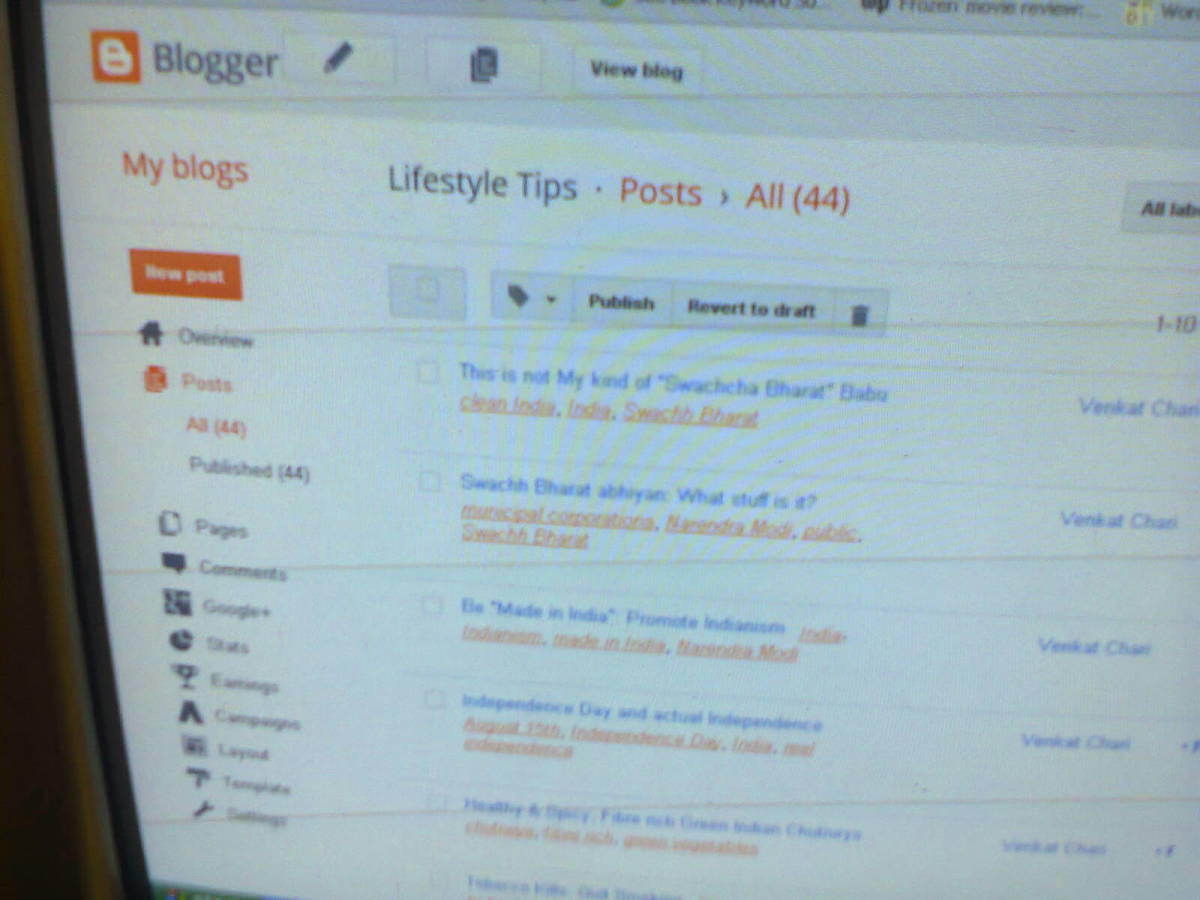LeerWiki A Dutch hubpages?
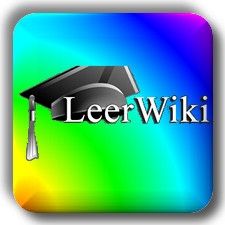
What is LeerWiki
The Dutch site LeerWiki could be compared to Hubpages. A site where you can write about subjects you know or learned about during a search for information. For example you are looking for information about building a website. You read several sites about the basics of building a website and build your own website. Now you have this knowledge about building websites. You could say:
Ok that's that, what's next.
You also could ask yourself the question:What have I learned and how could I help others with my knowledge?
If that question comes to mind LeerWiki is an option for someone who writes Dutch. So maybe you could compare LeerWiki also to the Dutch version of Wikipedia. But then you can not earn money publishing on Wikipedia, and that is something that is possible on LeerWiki with Google Adsense.LeerWiki links
Links to LeerWiki and about LeerWiki
All links are to Dutch written sites as LeerWiki is a Dutch site.
- LeerWiki.nl
A Dutch article site, in Dutch, with articles about different subjects. By which the authors hope to help their readers with their information. - LeerWiki.nl: de educatie-community
A Dutch website interviews the creator of LeerWiki. - Publiceren op internet
Article about several Dutch websites where you can publish articles. With a review of their differences. - Wat is er veranderd aan artikelsites
An article about changes in the last two years on several Dutch websites that offer the possibility to publish articles. - Normyo's profile on LeerWiki
If you can read Dutch, you can read a little bit more about me on this profile page on LeerWiki.
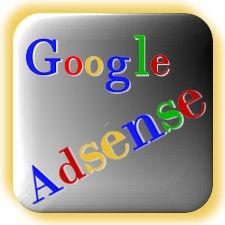
LeerWiki in development
Still developing
LeerWiki started in 2008 with software from MediaWiki, the same software used by Wikipedia. To make LeerWiki into more than just a copy of Wikipedia, it added a back office system with a forum, a moderation system, a questions section, a bonus system and Google Adsense. In 2011 LeerWiki changed its back office system and editor from MediaWiki to a more flexible CMS. This was a big change, but the owner sees it as a big step forward in making LeerWiki a modern well equipped site.
A few things however stayed the same after the change to another CMS, the site structure for the reader is still the same. LeerWiki still works with eight top categories:
Every category has his own background color to differentiate it from the others categories so readers can see by the color where they are within the vast number of articles on LeerWiki.
What also did not change was the profile page of every author on which you can find all their articles.
Although all these changes influence the reader experience, for example the added possibility to leave a comment or give a review, the most radical changes are off course in the authors workspace.
Writing an article - Different from blogging
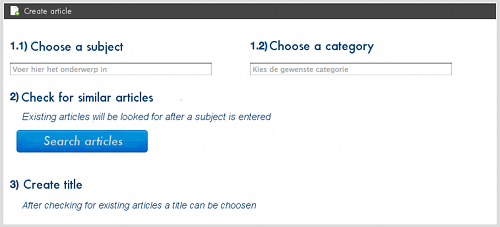
As it is important for sites like LeerWiki, Hubpage and Squidoo that articles, hubs and lenses are unique, LeerWiki has tried to solve and prevent the problem of double content. Their solution is to start with asking the author to first enter his article subject and the category he thinks his article belongs to into a control page. Then the author has to check if the title for his article is unique. Only after the system ok's the article title the author can start to write his article.
The advantage of this system over not checking title uniqueness is off course that every article on LeerWiki has a unique title. Which off course does not mean the article itself is unique. But then you might expect a little responsibility of an author him- or herself. Not to mention the fact that an author should remember that a unique title is advantageous for his or her articles search engine ranking.
About writing
As there are so many books and blogs about how to write, a simple search should suffice to learn more about writing. For example a book with 250 things about writing.
The last step - Getting past the moderator
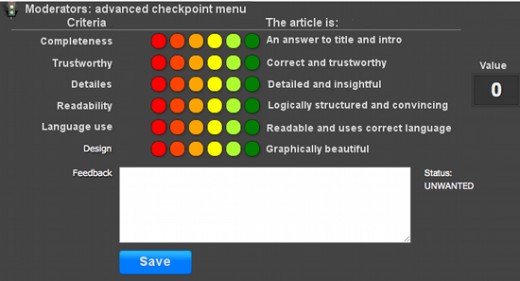
As writing an article for LeerWiki is not much different from a lens on Squidoo, I will not go into that. What makes LeerWiki different from most other article sites is the rather elaborate list of control points an article has to pass before it can be published. Articles need to be
- complete,
- trustworthy,
- give details,
- need a good structure,
- their language has to be correct and
- the design should be nice.
As long as any of the six points is below four LeerWiki expects an author to correct those points and put it in for another check by a category moderator. To make it possible for a moderator to help an author there is room for comments, so the author can get more feedback than just good or bad.
When an author passes this stage his article is published on LeerWiki and accesible for readers and search engines. From this moment on the author and LeerWiki can help readers to start to learn something they might not have known before and start to earn money through Google Adsense. And if the author wishes he can even ask for a new check of his article by the category moderator, for example when he adds new information or changes something in the structure.
One last point to make. The value box at the far right is calculated over all the categories. Where some categories have a greater value than others. And the value the moderator gives an article weighs heavier for the overall score of an article, based on all reviews given by readers and moderators.
A few of my articles - that made it through
- De techniek van het schrijven
Writing asks a lot of a writer. - Geld verdienen met schrijven op internet
It is possible to earn some money with writing article and publishing on internet. - Kolb's theorie voor schrijvers
Writers could use Kolb's learning theory.
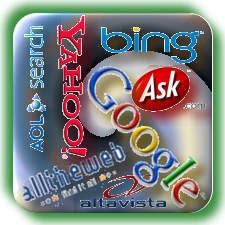
What's next
Backlinks
Now the article is open for readers and search engines, but how often will it be found and read. If you are new and have lots of friends you can off course invite them all to read your article. But that is one time only. If you want to help people and make money with your article it has to get into the search engine rankings.
Luckely for LeerWiki authors Leerwiki is now so old according to search engines and changes often enough to justify a regular visit from their crawlers and robots. As a LeerWiki author you can expect your article to be picked up by the search engines within a day or two days after publishing. So you have two choices you can do nothing and wait for the visitors and readers to come. Or you can put a link on facebook or any other social website you are a member of and create some backlinks on social bookmarking sites.
But what ever you choose to do, LeerWiki will be there when you get the urge to write a new article about something you learned.
A Squidoo lens - about backlinking
- Where to Get Backlinks to Your Site
This lens is very interesting if you want to know more about how, where and why to get backlinks.
Is LeerWiki a Dutch Hubpages
Of course it is!
You might say that LeerWiki is a Dutch Hubpages, both sites give authors the possibility to publish their articles. In that sense LeerWiki also looks a lot like Squidoo.
Naturally there are differences between LeerWiki and Hubpages. To start with LeerWiki only allows articles written in correct Dutch. So as long as translation software like Google translate only creates broken Dutch articles, LeerWiki is not available to foreign language writers. Although LeerWiki has expressed the plan to create a site for English writing authors.
So yes LeerWiki is a Dutch version of Hubpages, but is that a problem. Of course not, as long as authors remember that search engines and especially Google, but most of all readers appreciate unique content that is informative and useful.





